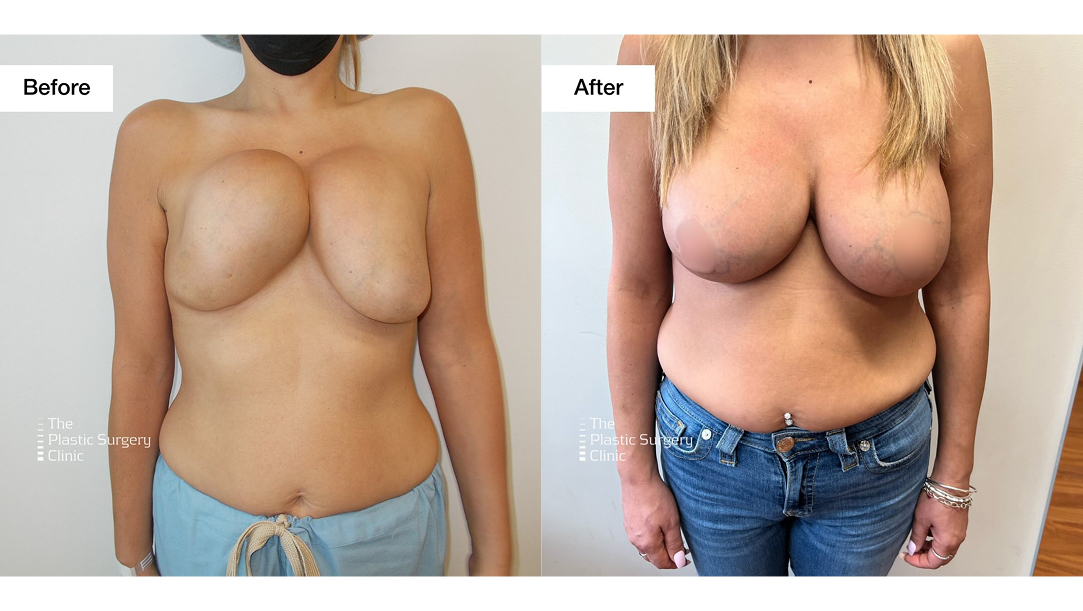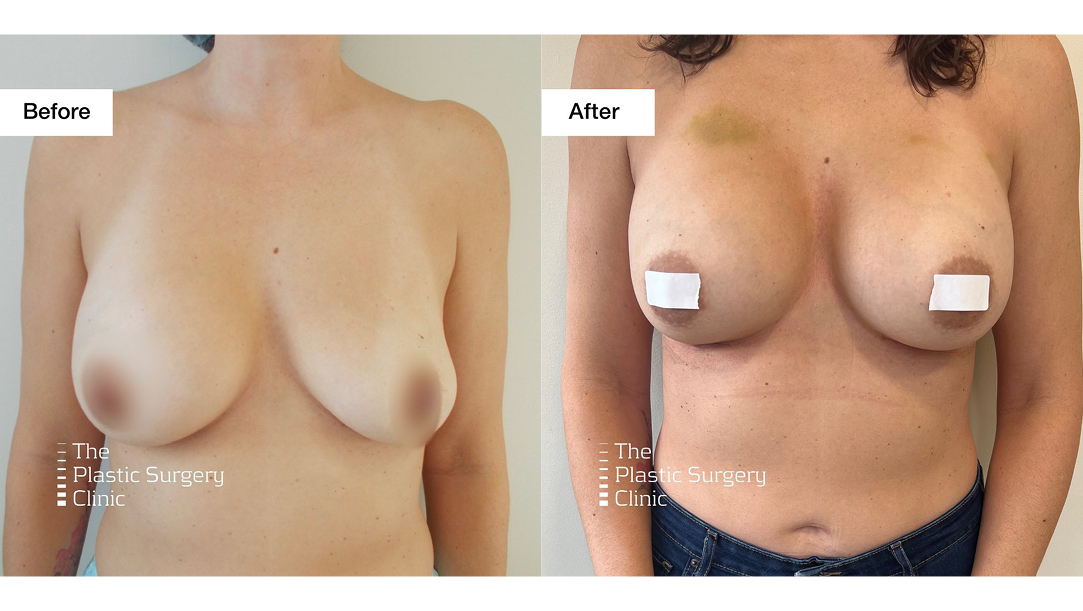
Plastic Surgery Blog


So you’ve had a breast procedure that you’re not completely happy with. Maybe you’re experiencing some complications that need rectifying, or there’s been an innovation in the operation that you’d like to experience for yourself. It could even be that you could only afford to get one part of the procedure at the time, but now you’re ready to continue your transformation. Whatever the case may be, our surgeons are happy to see you for a breast revision consultation.
This is a new development here at The Plastic Surgery Clinic as the industry standard was to refer patients back to their original surgeon. This is because the surgeon who performed the initial procedure generally has a better grasp of details that might influence a revision. With years of experience, our surgeons have become more attuned to the nuances of revision surgeries and are offering this option to new patients.
Breast revision surgery is an all-encompassing term that covers both breast augmentations and reductions. Typically, augmentations involve increasing volume through implants or fat transfers, while reductions decrease volume for a lighter, more proportional appearance.
Our breast revisions primarily focus on the augmentation side, but we also perform revision breast reductions when necessary. For those who have had implants or a fat transfer, revisions may be required for a variety of reasons, which we break down below.
There are many reasons why you might consider a breast revision:
Implant Size Adjustments: Whether you want to go bigger, smaller, or simply adjust the proportions, a breast revision allows you to change your implant size. Even with careful planning during the initial surgery, changes in body shape or personal preference may inspire a revision.
Implant Type Upgrades: Technology evolves, and so do implant materials. Patients with saline implants often opt for silicone for a more natural feel, while others may seek more cohesive gel implants for enhanced durability.
Addressing Ruptures or Rippling: Although rare, implants can rupture or show visible rippling over time. Silicone ruptures are less migratory but still compromise the structure of the implant, while saline ruptures are more apparent as they deflate.
Capsular Contracture Correction: This is the most common reason for breast revision. When scar tissue forms tightly around the implant, it can cause discomfort and visible changes in appearance. Revision surgery addresses this to restore symmetry and comfort.
Casing and Texture Updates: Some textured implants have been recalled due to health concerns. Smooth implants or newer generations of textured options can be used to replace older models.

This patient had previously developed severe symmastia and capsular contraction from another clinic. This is a rare but challenging complication that can happen after a breast augmentation when the tissue between the breasts become over-dissected leading to a “uniboob” appearance. Capsular contraction occurs when the tissue surrounding the implant forms a capsule, which then contracts and tightens over time. Our patient is now 5 months post-op and recovered beautifully from the revision. Thank you for putting your trust in us! We’re so honoured to have been a part of your journey
It’s not always about correcting complications. Some patients seek breast revision to refine their aesthetic goals. This can include:
Changing Implant Style or Position: Adjusting the implant’s position or type can create a more refined silhouette.
Combining a Lift with Revision: Over time, natural aging and weight changes can affect the appearance of implants. A breast lift, in combination with revision, can restore a perkier, youthful look.
Transitioning from Implants to Fat Transfer: If you’re considering removing your implants, a fat transfer can help maintain volume and shape.

This patient is 2 weeks post-op from an open cap and replace (also known as a breast augmentation revision). She had a breast augmentation with saline implants in 2012 and her left saline implant became flat. We replaced both of her implants with cohesive gel. Cohesive gel implants are solid silicone implants, otherwise known as the “gummy bear implant.” They have the amazing advantage that if for whatever reason they were to rupture or their shell were to be broken, they will not leak and they will retain their shape.
You’ll gain a clearer understanding of the surgical process during your consultation, but here’s a brief overview:
Minimizing Scarring: Our surgeons prioritize minimizing scarring whenever possible, often using the same incision points as the original procedure.
Consultation and Planning: During your visit, we’ll assess your current implants, overall health, and aesthetic goals to create a customized surgical plan.
Timing Considerations: Unless you’re experiencing a complication, our surgeons typically recommend waiting one year after your original surgery before pursuing a revision. This allows your body to heal and settle into its new form before making adjustments.
While a breast revision can correct complications and help you achieve your aesthetic goals, it’s important to consider the decision carefully. Surgery of any kind carries risks, and it’s crucial to weigh the benefits against the recovery process.
Our team is here to support you every step of the way. Book a consultation with one of our expert surgeons to explore your options and find out if breast revision is the right choice for you.
Did we answer all your questions? Our goal is to ensure you have the best information possible to make your decision. If you still have questions, we’re here to help.
 Email Us
Email Us
